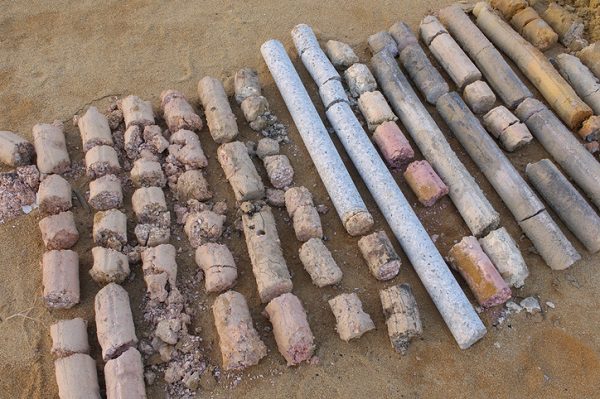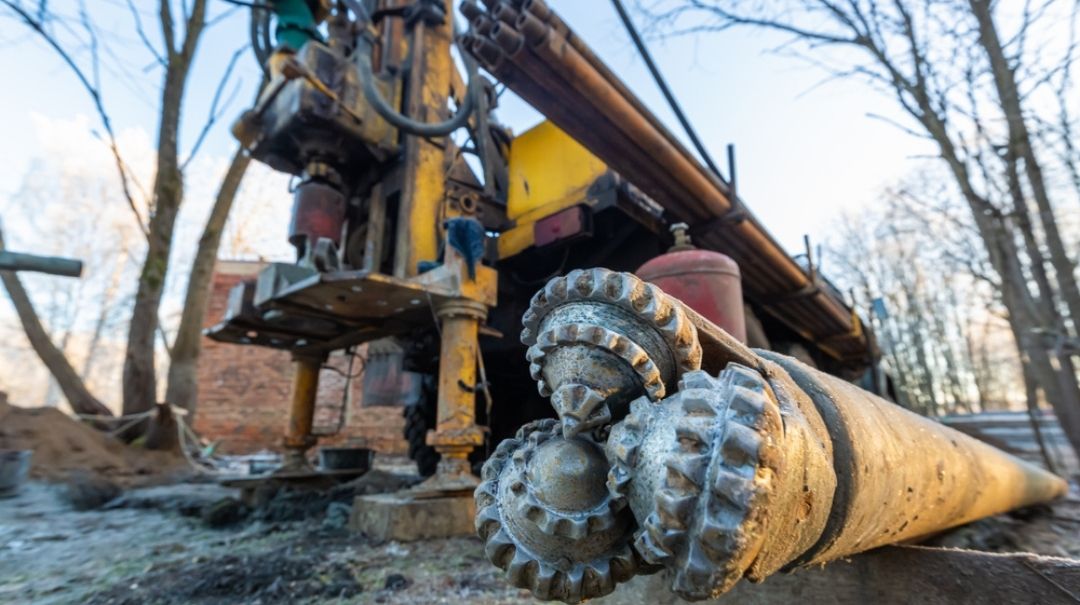The Influence of Geotheta on Improving Dirt Security and Architectural Honesty
The Influence of Geotheta on Improving Dirt Security and Architectural Honesty
Blog Article
Unveiling the Essential Geotechnical Solutions: How Geophysical Study, Slope Stability Analysis, and Groundwater Keeping An Eye On Enhance Facilities Development
In the world of facilities growth, the relevance of geotechnical solutions can not be overemphasized. Geophysical study, slope stability analysis, and groundwater monitoring stand as columns that strengthen the structure of large projects. These services give important understandings right into the subsurface conditions, prospective risks, and total usefulness of construction ventures. By utilizing the power of advanced innovations and expert analysis, infrastructure designers can browse complicated difficulties with foresight and precision (geotheta). As we unwind the detailed internet of geotechnical services, a deeper understanding arises of just how these essential parts balance to not only reduce risks yet likewise maximize the efficiency and durability of infrastructure projects.
Relevance of Geophysical Study
Performing a geophysical study is necessary in infrastructure advancement as it provides critical insights into the subsurface problems and possible geological risks. By making use of various geophysical techniques such as ground-penetrating radar, seismic surveys, and electromagnetic induction, geologists and engineers can draw up the underground frameworks and determine potential dangers prior to building and construction begins. This positive approach helps in avoiding pricey surprises during the building and construction phase, inevitably saving time and money.
Geophysical studies are particularly valuable in analyzing the stability of the ground, situating below ground energies, and recognizing possible ecological concerns. Understanding the soil make-up, deepness of bedrock, and groundwater level degrees is essential for making strong structures and drain systems that can hold up against natural pressures and stop dirt disintegration.
Additionally, geophysical studies play a considerable duty in guaranteeing the security and long life of facilities tasks by supplying important details for site choice, route preparation, and risk mitigation techniques. On the whole, the value of geophysical studies in infrastructure advancement can not be overemphasized, as they form the foundation for effective and lasting construction projects.
Enhancing Slope Security Analysis
Enhancing slope stability analysis is a vital facet of geotechnical engineering in ensuring the security and resilience of framework projects. By utilizing innovative technologies and approaches, geotechnical designers can analyze the stability of slopes much more precisely and adequately. One trick method for enhancing slope stability evaluation is the application of numerical modeling software, which enables designers to mimic various slope conditions and prospective failure devices. These versions give valuable insights right into the variables influencing slope security, such as dirt residential or commercial properties, groundwater degrees, and outside tons.
In addition, performing comprehensive field investigations, including geological surveys and geophysical testing, can boost the accuracy of slope stability evaluation. Overall, enhancing slope security evaluation is essential for guaranteeing the long-term safety and security and sustainability of facilities jobs.
Function of Groundwater Monitoring
Reliable groundwater surveillance plays an important duty in making sure the stability and safety and security of infrastructure projects. geotheta.com Groundwater degrees can considerably influence the architectural integrity of structures, passages, and other underground frameworks. By continuously keeping an eye on groundwater levels and high quality, designers can recognize possible risks such as soil erosion, foundation instability, and waterlogging.
Groundwater tracking helps in assessing the effect of building and construction tasks on neighborhood aquifers and water sources. It enables the very early detection of any kind of groundwater contamination, guaranteeing and stopping ecological hazards compliance with policies. By recognizing the groundwater characteristics, designers can execute suitable dewatering measures to control water inflow throughout excavation and building processes, reducing the threat of flooding and structural failure.
Integrating Geotechnical Services
Groundwater tracking, a crucial element of infrastructure development, lays the foundation for incorporating geotechnical services flawlessly right into construction tasks. This assimilation enhances the overall project planning, design, and building phases, leading to a lot more cost-efficient and efficient framework growth.
Furthermore, the assimilation of geotechnical services enables for the identification of possible threats and challenges early in the job lifecycle, making it possible for aggressive actions to be applied to minimize these issues. Via a multidisciplinary technique that incorporates geophysical, geological, and hydrological data, designers can maximize building and construction processes, minimize environmental impact, and ensure the long-lasting security and efficiency of the framework. On the whole, incorporating geotechnical solutions is necessary for effective and sustainable facilities advancement.

Advantages for Infrastructure Growth
In the world of framework growth, the usage of integrated geotechnical services brings forth a plethora of benefits that substantially improve project end results. Slope security evaluation plays a critical function in making certain the safety and security and durability of framework by assessing the stability of slopes and recommending necessary support procedures. Generally, the consolidation of geotechnical solutions in framework development not just improves job efficiency however likewise adds to the durability and durability of constructed facilities.
Conclusion

Enhancing incline stability evaluation is an essential facet of geotechnical design in guaranteeing the safety and security and resilience of framework jobs. In general, improving slope security analysis is important for making certain the long-lasting safety and sustainability of facilities tasks.
Slope security analysis plays an essential function in making sure the security and long life of framework by assessing the stability of slopes and advising needed reinforcement actions. geotheta.In verdict, geophysical survey, slope stability analysis, and groundwater surveillance are essential geotechnical services that play a crucial function in boosting facilities advancement. The benefits of including these services into framework advancement are clear, and their relevance can not be overemphasized in ensuring the long-lasting success and resilience of framework projects
Report this page